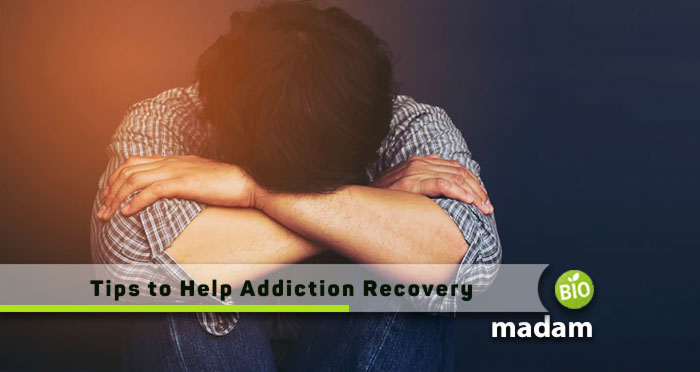If you are struggling with addiction, you are not alone. Addiction is a disease that affects millions of people each year, and it can be difficult to overcome on your own. However, there are many resources available to help you get started on the road to recovery. We will discuss some of the best health tips to help you get a new start in your addiction recovery journey.
Seek Controlled Treatment
Many people don’t realize that there are various forms of addiction treatment available. Depending on your specific situation, you may benefit from inpatient or outpatient care, depending on the severity of your addiction. A trained medical professional can help to individualize a plan that is right for you and give you the tools to succeed. If you’re in California, homes for Sober Living in Los Angeles are a new way of life for many individuals in recovery. Sober living homes offer a safe, supportive environment and provide access to on-site care and support services.
Reach Out for Support

Getting the proper support is essential when it comes to addiction recovery. It can be beneficial to talk to family members, friends, or a trusted medical professional about your situation and how you’re feeling. Many people find that support groups and online forums provide a safe space to open up and share feelings of vulnerability. These groups can also be a great source of information, as well as provide an outlet for building strong peer relationships.
- AA Support Groups: AA offers a wide network of support groups to help individuals struggling with addiction. If you are looking for an in-person or online meeting, AA can provide a safe and supportive environment where you will find understanding, acceptance, and hope.
- NA Support Groups: NA is another great resource for addiction recovery. They provide a network of support groups, as well as online resources to help you stay sober and connected to the community.
- Online Communities: If you are looking for an online community, there are a variety of options available. Support forums, blogs, and social media platforms can be a great way to stay connected and engaged with the recovery community.
Develop Positive Habits
One of the best ways to help your recovery is to develop positive habits that will help you stay on track. This could mean establishing healthy routines, such as exercising regularly, eating nutritious meals, drinking enough water, getting enough sleep, or meditating each day. It’s also important to limit your exposure to triggers that could lead to relapse. Try limiting your access to alcohol and drugs in social settings, spending time with people who support sobriety, and avoiding any activities or situations associated with substance abuse. Additionally, try to identify the underlying causes of your addiction. This could be anything from trauma or mental health disorders, to peer pressure or a need for connection.
Practice Self-Care
Self-care is an important part of staying healthy and managing stress levels. Make sure you are taking time each day to do something that relaxes you, whether it’s reading a book, going for a walk, or watching a movie. It’s also important to identify any emotions or mental health issues that could be contributing to your addiction and seek professional help if needed. Finally, make sure you are getting enough rest and eating nutritious meals throughout the day. Working out and exercising can also help to reduce stress and boost your overall well-being.
Find Meaningful Hobbies
Having meaningful hobbies can provide positive distractions from bad habits and add structure to your life in recovery. This could involve engaging in creative activities such as drawing, painting, or playing music – being active outdoors through sports or hiking – or exploring new interests such as learning a language or taking an online class. Hobbies can help you to build self-confidence, stay focused on your recovery goals, and open up new growth opportunities. Also, having a regular hobby can provide you with an outlet to relax and reduce stress. Finally, engaging in meaningful hobbies can help you to make new social connections, which are also important during recovery.
Make Healthy Coping Mechanisms
To stay sober, it’s important to find healthy ways to manage stress and difficult emotions. Identify your triggers and make a plan of how to handle them positively. Some helpful coping mechanisms may include talking with a friend, journaling, meditating, or engaging in physical activity such as yoga, breathing exercises, or running. It can also be beneficial to pick up new hobbies that bring you joy and foster self-care. If you’re feeling overwhelmed, reach out to a support group or therapist that can help you stay grounded. Taking care of your mental health is an important part of remaining sober and should be taken seriously.
Surround Yourself with Positive People
Surrounding yourself with positive people can help to keep you accountable and motivated throughout your recovery. Find friends, family members, or support groups that will encourage you in your sobriety and provide emotional support. Additionally, it’s important to avoid situations or environments where drugs or alcohol are present since this can be a risk to your sobriety. If you’re struggling with this, it may be beneficial to talk with a professional or join an inpatient treatment program. Having positive people in your life can make all the difference in staying sober and making progress in recovery.
Celebrate Your Successes

Recovery is a long process with lots of ups and downs. Remember to celebrate the small successes along the way, as they are important in motivating you to keep going. Share your successes with family and friends or even write them down in a journal. This can be both encouraging and rewarding – it’s easy to forget how far you’ve come when life gets hard, so taking time to recognize your progress is essential for staying motivated on your journey.
By following these tips and making an effort to stay committed to your recovery goals, you can ensure that you make lasting changes toward sobriety. Though there will be challenges along the way, focusing on these strategies can help to keep you strong and on the right path. And remember, you’re never alone – there are countless resources and support systems available to help you on your journey.

Hi, they call me Jenna, and I am also known for achieving a gold medal during my Ph.D. in science life. I always had a dream to educate people through my utmost writing hobby. So, I chose this blogging path, and Biomadam gave me this opportunity to present for them. I now stand to entertain you. Continue reading my articles & discuss if you’ve any confusion through the comment section below.

